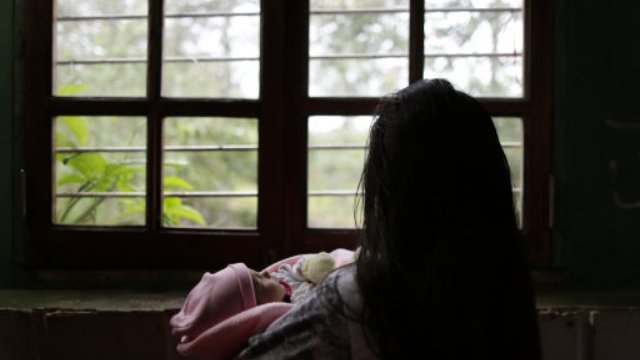Call For Investigation Into Why Mental Health Services Reject Some Children
20 March 2017, 08:06 | Updated: 20 March 2017, 08:10

A children's charity has backed calls for a review of why young people are rejected by mental health services.
Barnardo's Scotland said there were "serious issues'' with the process of referral to Child and Adolescent Mental Health Services (CAMHS).
NHS figures show that around one in five referrals was rejected in 2015, with the number affected totalling around 17,000 children and young people over the last three years.
The charity said it supported Scottish Labour's campaign for an investigation into the issue, saying it had become "increasingly concerned'' after carrying out a review of its own services which support around 3,000 children and young people.
Half were found to have mental health issues but three quarters of those were receiving no service from CAMHS.
Barnardo's Scotland said children and young people "described losing trust in CAMHS because of the fear that they would not be seen''.
Director Martin Crewe said: "Although waiting times for CAMHS continue to be an issue, it is increasingly worrying that there are significant numbers of children and young people who are not being seen at all.
"These children and young people either go without support or receive limited or inappropriate help. In our experience this can be the result of something as simple as insufficient information being included on a referral form.
"A review should consider how the current system works including looking at the criteria for referral nationally, the process for making a decision and crucially what happens to those children and young people who are rejected.
"The children and young people we work with who are referred and not seen by CAMHS receive some support, but there are many who fall through the net. It is vital that the Scottish Government's forthcoming mental health strategy addresses this issue.''
The charity also highlighted new research from The University of Stirling showing that the odds of being rejected were significantly higher if a child or young person was referred by a teacher or had emotional or behavioural difficulties.
Scottish Labour's Monica Lennon MSP said: "It's shocking enough that one in five children in Scotland are having to wait far too long for mental health treatment, but this new research indicates that many children and young people are not able to access specialist treatment at all.
"Many children across Scotland in need of mental health care are clearly not able to access the help they need, and I urge the SNP Government to listen to Barnardo's Scotland's call for a complete review of the referral process.''
Minister for Mental Health Maureen Watt said: "Not everyone who is referred to CAMHS will need to be seen by a specialist as there are a range of treatments and services available.
"Ultimately it is a clinical decision whether to refer a patient, however, we expect boards to provide adequate treatment for everyone who needs it.
"We are seeing record numbers of young people coming forward for treatment for mental health issues, and we would encourage anyone who feels that they need it to come forward and ask for help.''
She highlighted an additional £150 million of investment for mental health services and said the forthcoming strategy will "include focus on improving access to services and also increasing support for early intervention and prevention''.






